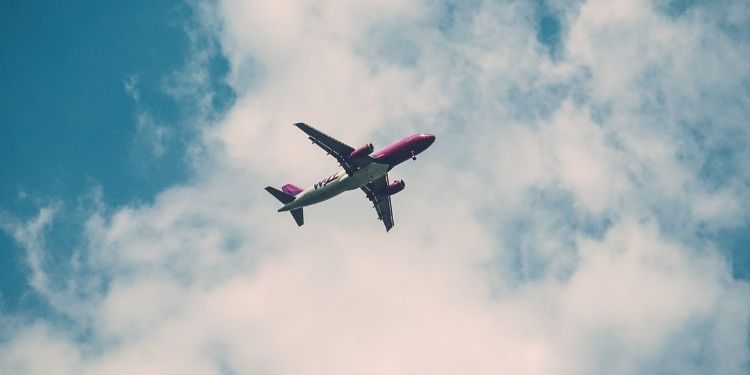The past two years have been very difficult for all in general. The new normal in a world where Covid-19, unfortunately, has become part of our life and will bring about many changes in the way businesses will be conducted, and more importantly the way we live our life. The Union Budget 2022 -23 is being keenly watched by many sectors. The 3rd& 4th quarters of 2021 did see the economy looking up, the third wave or Omnicron which hit us in mid-December was the dampener.
The pandemic was the death knell to the hospitality and travel industry. The industry is slowly coming to terms with many conditions in place and trying to consolidate its businesses. The industry is hoping that this budget 2022-2023 will address their issues by relooking at GST, the licensing issues plaguing the F&B sector, and many other factors.

Teja Chekuri, Managing Partner, Ironhill India: “We would like the finance ministry to take a look at the GST regulations in the hospitality, food, and beverages industry. We don’t get any input but we have to pay GST to a lot of items we purchase ranging from 18 to 28% which directly impacts the margins. This has a domino effect and impacts the customers directly. The reduced margins reflect directly in the increased menu pricing which impacts customers and in turn affects the number of walk-ins”.

Dharmishtha Goenka, Founder of Praakritik: “In the coming budget we would encourage the government to give more importance to businesses promoting organic farming and increase the ease of funding, in forms of supply chain subsidies, ease certification process & access to working capital for start-ups. Organic farming should be given special preference so that farmers are encouraged to undertake chemical-free farming and as consumers, we can also benefit from it.”

Farman Beig, Co-founder & CEO of Wat-a-Burger: “It takes multiple licenses to establish a food & beverage business in India. We expect the government to address this in the upcoming budget. Additionally, the sector requires reintroduction of the inputs tax credit. Also, considering the sector has been struggling due to the pandemic havoc, it is necessary to provide it with relief package and special fund allocation for speedy recovery,”
Ushang, Co-founder & CEO of SupplyNote: “The food and beverage industry has incurred heavy losses due to the pandemic, which makes it essential for us to look up to the Union Budget 2022-23 for relief. In order to accelerate the recovery of the sector, this budget should enable interest-free loans, greater subsidies, and a reduction in tax structure. Additionally, since most of the F&B businesses fall under Micro and SMB categories they should be offered an extended moratorium. Considering the current situation, business losses should be allowed to be carried forward from the existing 8 years to 12 years”.

Aloke Bajpai, Group CEO & Co-founder, ixigo: “As the pandemic becomes endemic, we are seeing the true bounce-back potential of domestic tourism which saw a sharp rise in tourist flow in 2021 due to pent-up demand, vaccine roll-out, and revenge tourism. While demand and search queries for travel have been slowly climbing in the last two quarters and the industry is regaining momentum, certain provisions by the government can help bolster the industry back to pre-COVID-19 levels sooner. We have noticed the rise of domestic air travel from tier 2 and 3 towns and budgetary focus on the development of infrastructure, technology, and safety measures of existing and new airports in Tier 2 & 3 cities will help boost tourism by improving connectivity with those cities where trains or buses may be the only connectivity today. We are looking forward to the government strategizing a sustainable long-term plan to help revive international travel which is currently disrupted by ongoing waves. The introduction of innovative initiatives like the ‘sandbox schemes’ currently being followed by countries like Thailand and Indonesia will help India build a more resilient tourism economy going forward. We also expect the upcoming budget to allot incentives for domestic tourism and promote it within the country. IT deductions on domestic travel and tourism spending will help incentivize tourism and boost domestic travel further. Tax breaks and waivers for the airline sector will also help aid faster recovery of the industry. Bringing ATF under the ambit of GST (which currently comprises 40-45 percent of the total operating cost of an airline) will bring much-needed relief to the aviation sector. “

Rajnish Kumar, Group CPTO & Co-founder, ixigo: “Train travel in India has seen a faster recovery than other travel modes with a swift recovery of reserved train ticketing. Since the onset of COVID-19, more travelers are opting to book reserved coaches on trains for enhanced safety and train travel in non-Tier I cities. This has led to a resilient demand segment for railways as even during peak COVID waves, over 50% of railway capacity was still being serviced. The upcoming budget has the potential to re-invent the railway sector by adopting smarter strategies that prioritize the health and safety of train passengers. We believe that the digital distribution of unreserved train tickets through IRCTC and OTAs should be prioritized to reduce queues at the railway station. Re-inforcing public transport systems and SRTC bus providers with advanced technologies like QR code-based ticketing and IoT can help build a safe commuter environment by uncrowded public transport spaces. Initiatives like contactless systems, automated sanitization, voice or motion-activated devices can minimize contact with high-touch surfaces and prevent cross infections at crowded railway stations and bus stations.”

Sanjay Pathak- Founder – Sea-6 Packaged drinking water: “The way Covid-19 hit the entire world, no one was ready. As a country, we were also hit hard and we suffered, and eventually are fighting back to normalcy. Post pandemic, as a citizen, I am expecting the government to spend more on public healthcare and infrastructure creation, better planning, and more PPP projects for faster execution so that we are well-equipped to tackle such future calamities, if there comes any, as a nation. As an entrepreneur, I have been working for more than 3 decades in the food and beverage industry. We, as an organization, are moving towards a product philosophy where our focus is to produce and manufacture products that help people stay healthy and help them in their overall well-being. There will be a bit of healthcare in everything we do going forward. A system where a certain high licensing and regulatory entry fee is deferred for smaller startups would be a welcome move and will surely encourage and help the entrepreneurs to get going with lower capital requirements. It would also be great to have better and special tax structures, financial and regulatory support for organizations who are working for manufacturing and producing healthcare and related products in the eco-system for making the lives of every Indian healthier and contributing towards a healthier nation”.

















